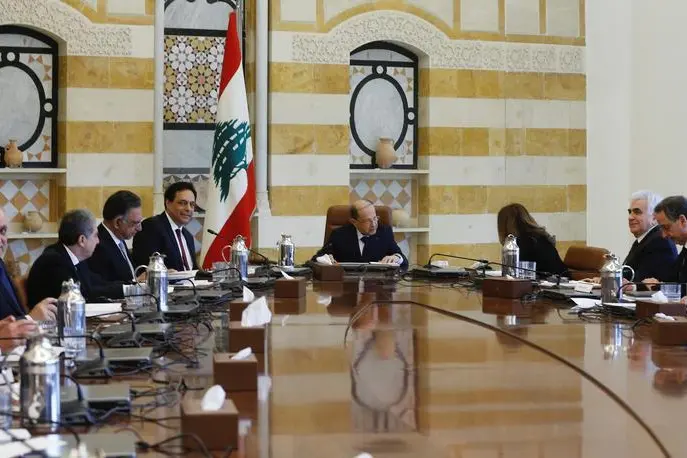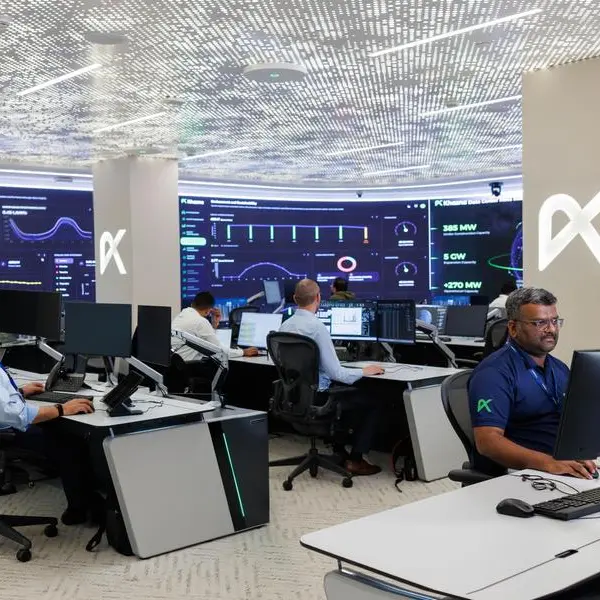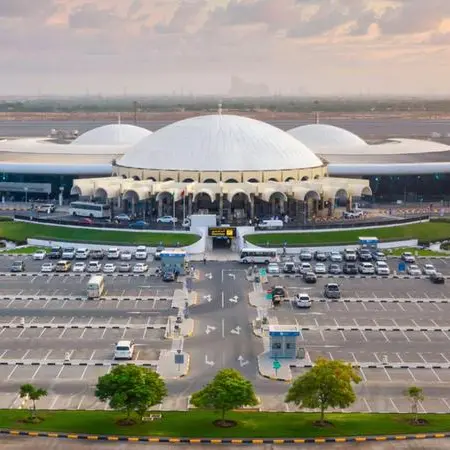PHOTO
BEIRUT: The Cabinets appointment Tuesday of a new board of directors to the state-run Eletricite du Liban, a key demand of international donors, came under fire from various opposition leaders, who dismissed the move as a sectarian carve-up of political spoils among main parties in the government.
The critics contended the Cabinets appointment mechanism fell short of the required reforms, deemed essential to securing desperately needed financial assistance from the international community to the crisis-hit and cash-strapped country.
The harsh criticisms of the appointment of EDLs board were similar to those with which the governments approval last month of a string of long-delayed key administrative and financial appointments were met by opposition groups, which said they were based on quotas rather than a mechanism that called for choosing candidates on the basis of competency and experience.
The Cabinet, meeting under President Michel Aoun at Baabda Palace, Tuesday appointed a new six-member board of directors to the EDL, Information Minister Manal Abdel-Samad told reporters after the session, which was held against the backdrop of extended power cuts throughout Lebanon.
The six names were selected from an all-male shortlist of 18 candidates representing the countrys largest sects. Those men will now be charged with reforming the decrepit electricity sector, which bleeds $2 billion annually from the state Treasury and has long been helmed by Free Patriotic Movement ministers from the Energy Ministry.
Tarek Abdallah was appointed from the Sunni candidates, Hussein Salloum from the Shiites, Samer Salim from the Druze, Karim Saba from the Orthodox, Habib Srour from the Catholic and Chadi Kreidy from the Maronites.
However, the Cabinet did not approach the appointment of an electricity regulatory authority, also a key demand of international donors, a clear indication that no consensus has yet been reached among the main parties making up the government on names of potential candidates for this body.
Expressing his disapproval of the EDL appointments, Progressive Socialist Party leader Walid Joumblatt tweeted: The government appointments were made at the expense of competence and sects, including the Druze, by swallowing the electricity sector and regulatory authority instead of [enacting] the required reforms."
The Future Movements parliamentary bloc, which met under former Prime Minister Saad Hariri, said the Cabinets move was a new link in a chain of a sharing of administrative spoils.
The bloc was not surprised by the request policy adopted by the government toward appointments, particularly the appointments in the electricity sector, which have been held up for three years due to the ruling partys insistence on putting the sector under direct administration by the partys [FPM] minister and the crew affiliated to it at the Energy Ministry, said a statement issued after the blocs meeting held at Hariris Downtown Beirut residence.
Recalling repeated statements by politicians demanding putting an end to the waste in the electricity sector and facilitating the formation of a board of directors and a regulatory authority to EDL, the bloc said: The results reached by the government were disappointing as usual and constituted a new link in a chain of a sharing of administrative spoils at the expense of the public interest. The [Aouns] mandate and its government have provided a repeated example of the suspicious performance and a message to all those concerned in Lebanon and abroad that the electricity sector has not been liberated from political and partisan captivity.
Lebanese Forces leader Samir Geagea lamented the absence of an appointment mechanism approved by Parliament recently.
First, what is the benefit of the regulatory authority if it is stripped of its prerogatives as it is being proposed and became merely a consultative body to the energy minister? Geagea tweeted.
Second, what is the use of a new board of directors if it comes the same way as previous boards of directors through direct appointment and without resorting to the mechanism proposed by Parliament? This is what happened in the Cabinet today. A crooked start will inevitably lead to a crooked outcome, he added.
The Cabinet also tasked a ministerial committee to study the details of a draft law to regulate the electricity sector. Energy Minister Raymond Ghajar said that Cabinets amendments to the draft law would fortify and expand the role of the sectors administrative body.
He added that it still needed some time, that it was not a final solution to the electricity sectors problems but that it would help Lebanon get aid from foreign funders.
Lebanon has been experiencing longer than usual electricity blackouts, lasting up to 20 hours per day in some parts of the country. This is due to the nonarrival of fuel to power the countrys electricity plants, causing stockpiles to dwindle and generator owners to ration electricity supply or turn their machines off.
Ghajar said that a first shipment of fuel will arrive Tuesday evening and that it would increase electricity supply by two hours. A similar ship will arrive at the end of the week, while an oil-gas tanker will arrive at the start of next week.
Local media reported that previous levels of electricity supply would be restored after the arrival of the third ship.
The Cabinet postponed a decision on the resignation of Alain Bifani, who quit last week as director-general of the Finance Ministry in protest at the governments failure to halt Lebanons economic collapse or implement much needed reforms.
Similarly, progress toward conducting a forensic audit of the Central Banks books was postponed.
The Cabinet decided to complete the forensic audit issue and technical details after obtaining reports from security agencies to determine if companies had any links with Israel, Abdel-Samad said.
The issue hit the rocks last week after Finance Minister Ghazi Wazni objected to such an audit taking place on the grounds that his political backers were against it.
Both Kroll and FTI Consulting have been proposed candidates to conduct the audit, but ministers have rejected both for their supposed ties to Israel in what appears to be an effort to derail the audit.
Security reports related to Kroll and FRI will be ready next week, local media reported. The Cabinet agreed on two companies Oliver Wyman and KPMG to conduct the less sensitive accounting audit of BDL.
Speaking at the beginning of the Cabinet session, Aoun underlined the need to carry out a forensic audit of the Central Banks books.
Aoun said a forensic audit constitutes an essential factor to study the financial and monetary situation in Banque du Liban, in addition to its significance in the ongoing negotiations with the International Monetary Fund to find the appropriate solutions to emerge from the financial crisis through which Lebanon is currently passing.
Speaking during the Cabinet session Prime Minister Hassan Diab sought to reassure the Lebanese, reeling under the worst economic and financial crisis in decades, that there is hope for overcoming the crisis.
He stressed that he was counting on Arab countries, which have expressed their readiness to support Lebanon in its current economic crisis.
Despite the black smoke on which some people insist on spreading in the country to block the road, pollute everything, poison peoples lungs and attempt to poison their ideas, there is hope to emerge from the suffocating crisis, Abdel-Samad quoted Diab as saying.
I can say today that there is a glimmer of hope that is getting bigger. I think within weeks, the Lebanese will feel the results of efforts we have made in the past [to ease the economic crisis], he said.
Copyright 2020, The Daily Star. All rights reserved. Provided by SyndiGate Media Inc. (Syndigate.info).





















